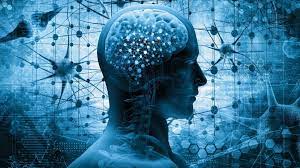Practical knowledge, cognitive relationships, and analytical skills are the foundations upon which learning ability rests. The great aim of education is not knowledge but action. We train our minds towards that end.
The new learnings
Treading the uncharted domain
Learning to learn is about learning from life- our relationships, successes, failures, and the external world. As we unlearn and relearn, we learn to question our assumptions, challenge our beliefs, and adapt our perspectives. In a rapidly changing world, fresh insights need to make way for outdated ideas. This can happen when we exchange ideas, share experiences, and inspire each other.
Learning styles
Every individual has a different learning style. Some are visual learners who benefit from diagrams and pictures, while others are auditory learners who grasp concepts through listening. One needs to discover his own style and tailor the study methods accordingly. With increased self-awareness, learning will be more effective and enjoyable.
Where the problem lies
Traditionally our education system focuses on teaching us “what” to learn, but neglects to teach us “how” to learn. There is a saying which goes “If you give a man a fish, you feed him for a day. But if you teach him to fish, you feed him for life.” We are given the fish, but we are not shown how to fish for ourselves. Learning to learn empowers us to become self-directed, curious, and resourceful learners who can dive into any subject and come out wiser.
Encountering Real life challenges
As we journey through life, we encounter numerous challenges and opportunities. Some might shy away from challenges, fearing failure, while others embrace them with open arms. Learning to learn is the secret weapon that enables us to confront challenges with courage and curiosity. It teaches us that failure is not a dead end but a stepping stone on the path to success.
All the great minds that have shaped our world have been relentless learners. They understood that learning is not limited to textbooks or classrooms; it is a constant process of exploration, experimentation, and growth.
So, how can we embark on this journey of learning to learn?
To begin with, we must embrace curiosity- with a genuine childlike wonder that makes us question, explore, and seek answers to new things. In this exploration, we might fail and stumble; however these hurdles should be taken as the stepping stones to success. Exploration makes us embrace new ideas, which we must be prepared to accept and reject old ones which have become irrelevant. We unlearn and learn, reflecting on our experiences, thereby widening our perspective. The entire process makes us more self aware, helping us develop as a complete learner.
Learning to learn improves our metacognitive skills, making us more aware of our own thought processes. It is an essential skill we develop to become lifelong learners. Each individual becomes open to harness each other’s transferable skills that can be applied across various subjects and domains. These skills, such as critical thinking, problem-solving, and information retention, prove immensely valuable in our academic, personal, and professional lives.
About the authors
The article has been contributed by the following students from Mahavir Senior Model School, New Delhi: Kuleen Katharine Lohia, Bhavisha Jain, Avni Jain, Pawni Kalra, Vaibhav Puri and Yash Jain.

